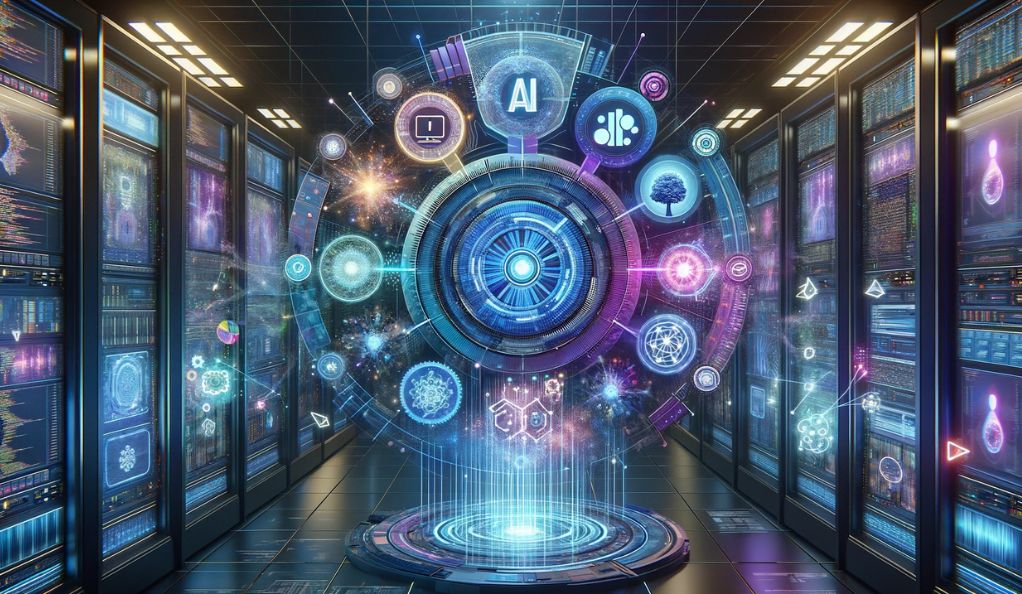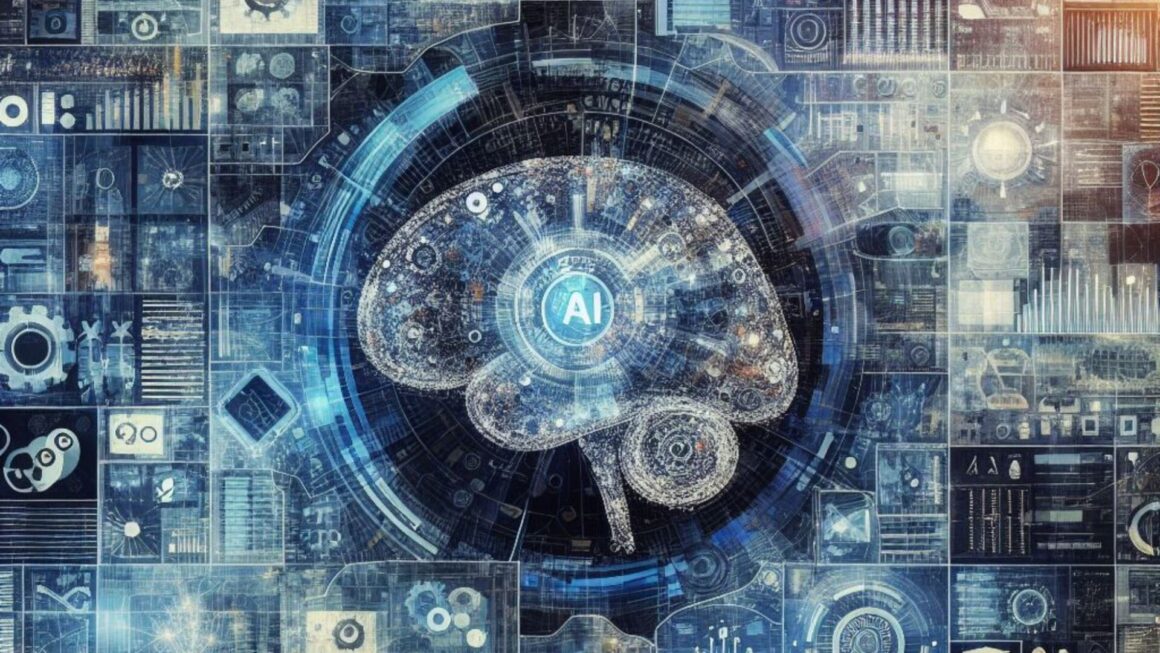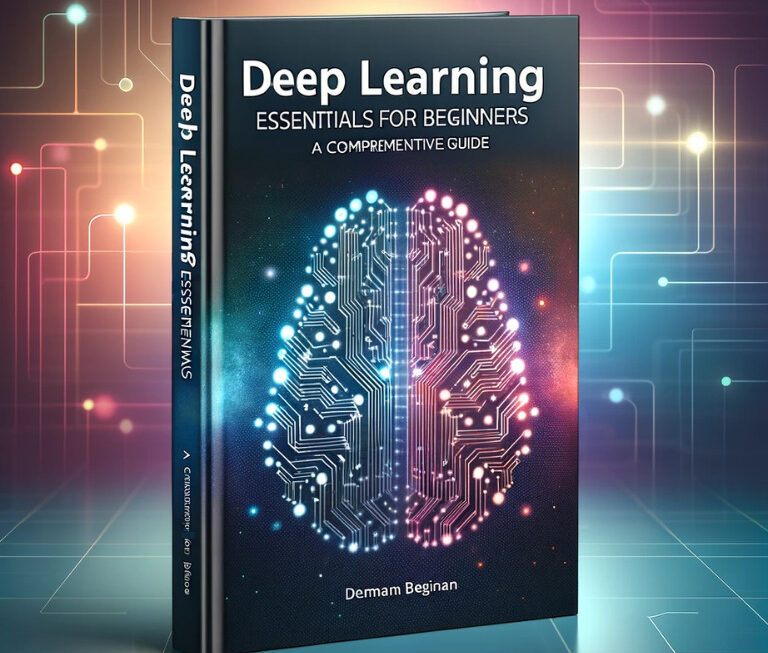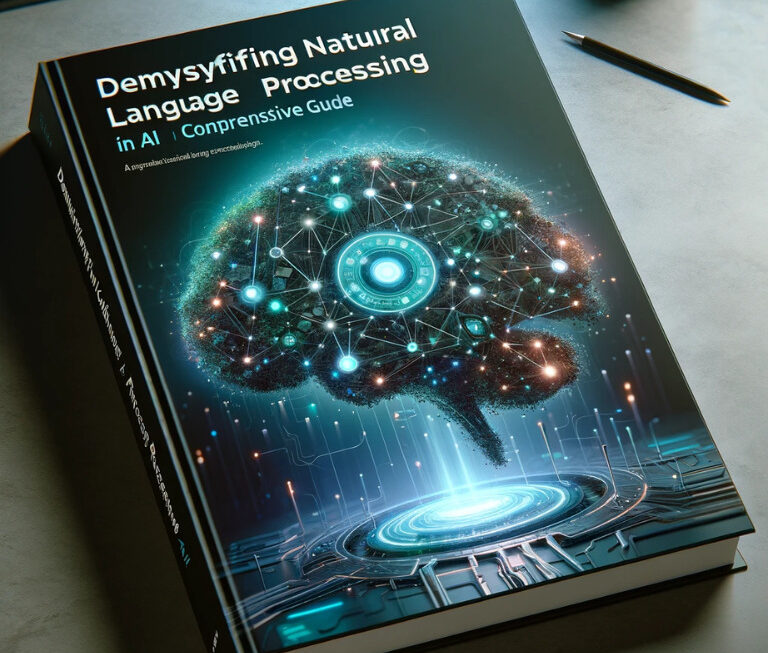The landscape of software development is undergoing a seismic shift with the advent of artificial intelligence (AI). Once the domain of human ingenuity alone, coding is now a collaborative field where AI tools and platforms stand shoulder-to-shoulder with developers, enhancing productivity and innovation. This transformation is not just about automating mundane tasks; it’s about redefining what it means to create software.
The Evolution of AI in Coding
AI’s foray into coding began with simple syntax suggestions and has evolved into sophisticated tools capable of generating functional code blocks, reviewing code quality, and even debugging. The journey from AI as a rudimentary assistant to a complex co-developer reflects a broader trend of AI integration across industries.
| Year | Milestone in AI Coding |
|---|---|
| 2010s | Introduction of basic code completion tools |
| Early 2020s | AI tools begin to understand context and logic |
| 2023 | AI platforms capable of generating and reviewing complex code |
How AI is Shaping the Future of Software Development
AI coding tools are not just about efficiency; they’re about elevating the quality of code and enabling developers to tackle more ambitious projects. They serve as a bridge between the intent of the developer and the intricacies of code syntax and logic. By translating human language into computer language, these tools are democratizing coding, making it accessible to a broader range of thinkers and creators.
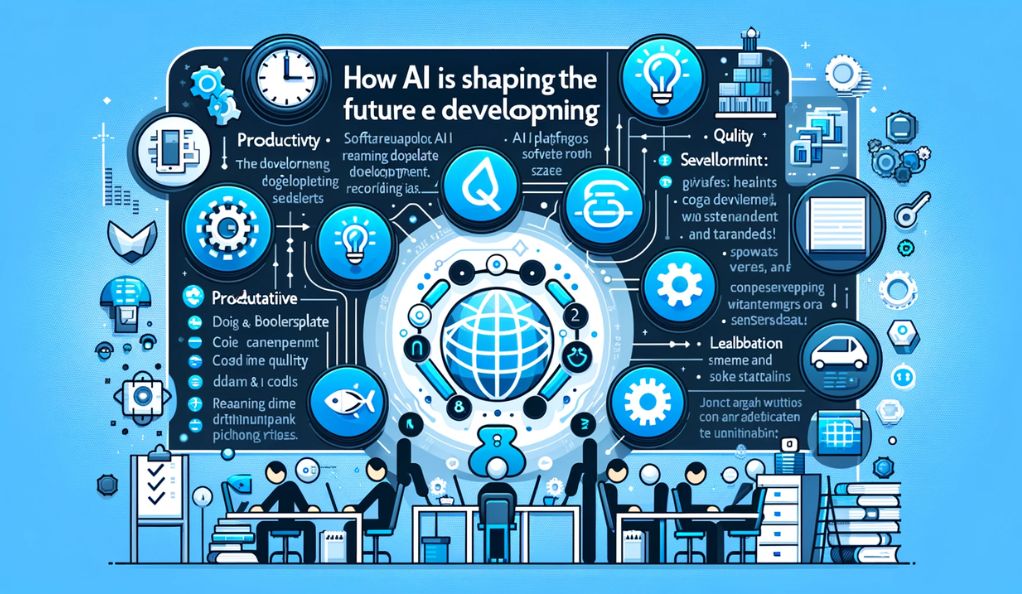
The impact of AI on software development is multifaceted:
- Productivity: AI tools like ChatGPT and OpenAI Codex can significantly reduce the time developers spend on writing boilerplate code, allowing them to focus on more complex and creative aspects of software development.
- Quality: Tools such as Codiga offer code review capabilities, ensuring that the code not only works but adheres to best practices and standards, thus maintaining a high level of quality.
- Learning and Development: AI coding platforms are becoming invaluable learning aids, helping both novice and seasoned developers understand new languages and frameworks through interactive coding sessions.
- Collaboration: AI tools are fostering a collaborative environment where the machine’s suggestions are another voice at the table, offering insights drawn from vast datasets beyond human capacity to analyze.
- Innovation: By handling the repetitive aspects of coding, AI allows developers to experiment more freely, leading to innovative solutions and applications.
As we stand on the brink of 2023, AI coding tools are not just optional accessories; they are essential instruments in a developer’s toolkit. They are the new co-developers, reshaping the very fabric of software development, and their role is only set to deepen as technology advances. The future of coding is a symphony of human and artificial intelligence, each complementing the other to create software that is more robust, innovative, and aligned with the complex needs of our digital world.
AI Coding Tools: The New Co-Developers
The integration of AI into the coding process has introduced a new paradigm where AI tools are not just assistants but co-developers. These sophisticated platforms bring to the table an unprecedented level of support in code generation and review, fundamentally changing the developer’s workflow.
Understanding AI’s role in code generation and review is crucial. AI coding tools, powered by machine learning algorithms trained on vast datasets of code, can now understand programming languages and provide contextually relevant code suggestions. This capability extends beyond mere autocomplete features of the past; it involves the generation of functionally sound and logically coherent code snippets that can save developers countless hours of work.
Comparing AI co-developers like ChatGPT, CodeT5, and PolyCoder reveals a competitive landscape where each tool brings unique strengths. ChatGPT, for instance, excels in understanding natural language queries and translating them into code, while CodeT5 and PolyCoder offer more language-specific expertise, with the latter being trained on a diverse set of programming languages and coding styles.
The Rise of AI-Assisted Project Management
Project management in software development is another area where AI is making significant inroads. Tools like ClickUp are integrating AI to help teams manage tasks more efficiently, predict project timelines, and automate routine project updates. This AI-assisted project management not only streamlines administrative tasks but also provides data-driven insights for better decision-making.
Automating workflows and sprints with AI means that project managers can focus on strategic planning and team management rather than getting bogged down in the minutiae of task assignments and progress tracking. AI’s predictive capabilities can forecast potential bottlenecks and suggest optimal resource allocation, ensuring that projects stay on track and within budget.
Enhancing Code Quality with AI
In the quest for excellence in software development, code quality is paramount. AI has emerged as a powerful ally in this domain, offering tools that not only detect issues but also enhance the overall quality of code through advanced analysis and feedback mechanisms.
Codiga’s Approach to AI-Powered Code Review
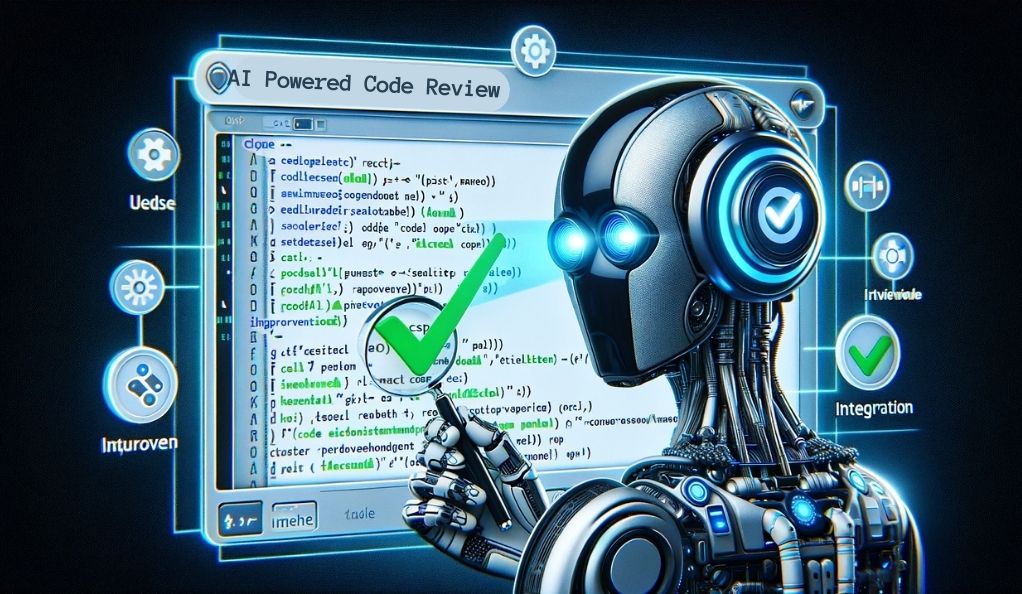
Codiga stands out with its AI-powered code review system, which acts as a vigilant overseer in the coding process. It employs machine learning algorithms to scan code repositories, identifying patterns that could lead to potential bugs or performance issues. Codiga’s system is not just a passive observer; it actively engages with the developer, providing suggestions for improvement that align with industry standards and best practices.
The platform’s ability to integrate with popular version control systems like Git allows for a seamless review process. As developers push code, Codiga’s AI reviews the changes in real-time, offering immediate feedback. This instant review process helps in maintaining a high code quality throughout the development lifecycle, rather than leaving reviews until the end, which can often lead to costly and time-consuming rework.
Security and Quality Assurance in AI-Assisted Coding
Security is a critical concern in software development, and AI-assisted coding tools are becoming indispensable in the early detection of vulnerabilities. These tools, equipped with the knowledge of countless codebases and the latest security advisories, can preemptively flag security flaws that human reviewers might overlook.
AI-powered static application security testing (SAST) tools can scan code without executing it, identifying potential security threats like SQL injections, cross-site scripting (XSS), and other common vulnerabilities. By incorporating these tools into the continuous integration/continuous deployment (CI/CD) pipeline, organizations can ensure that security is a priority at every stage of development.
Language-Specific AI Coding Tools
The proliferation of programming languages has led to a demand for AI coding tools that specialize in specific languages, offering developers tailored assistance that understands the nuances and subtleties of each language’s syntax and best practices.
OpenAI Codex and PolyCoder: Specializing in Language Proficiency
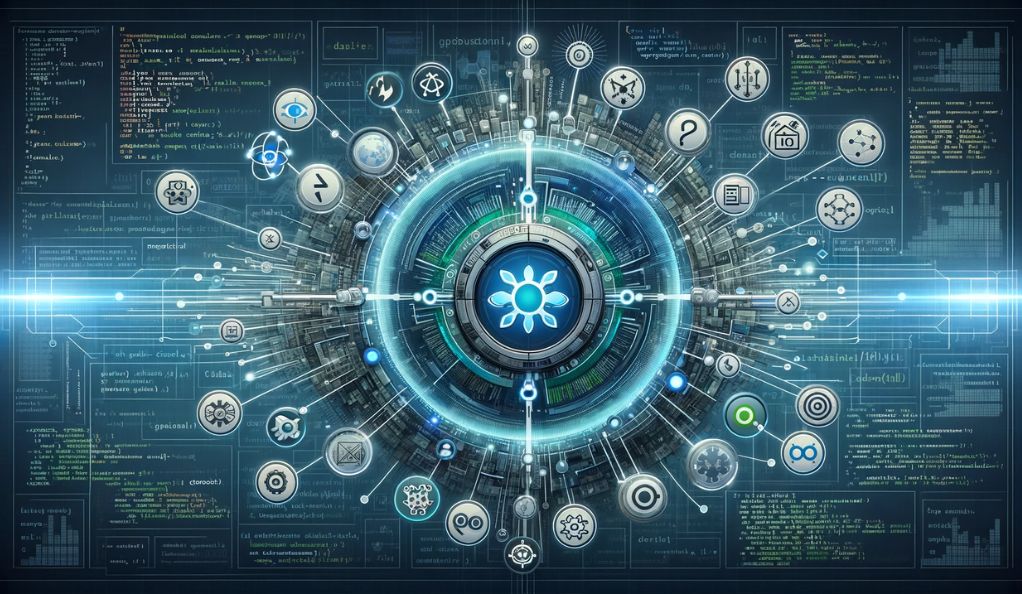
OpenAI Codex has been a game-changer for developers working across diverse codebases. Its proficiency in multiple programming languages means that developers can switch between projects with ease, relying on Codex to provide relevant code suggestions. Whether it’s a script in Python, a complex SQL query, or a front-end JavaScript function, Codex adapts to the language at hand, ensuring developers are supported regardless of the context.
PolyCoder, on the other hand, is tailored for deep language-specific insights. It has been trained on a corpus that includes lesser-known and domain-specific languages, offering developers who work in niche areas the same level of AI assistance that those working with mainstream languages enjoy. This specialized focus ensures that code suggestions are not just syntactically correct but also idiomatically in line with the language’s community standards.
AI Tools for Debugging and Troubleshooting
Debugging is a critical and often challenging aspect of software development. AI tools are transforming this task from a tedious process into an intelligent, streamlined experience.
ChatGPT and CodeT5: Debugging with AI
ChatGPT has been instrumental in providing developers with natural language explanations for complex code issues, translating the often cryptic error messages into understandable guidance. This not only speeds up the debugging process but also serves as an educational tool, enhancing the developer’s understanding of the underlying issues.
CodeT5 extends this capability by offering code-to-code translation, effectively taking an error message and suggesting the exact code changes needed to resolve the issue. This direct approach saves developers time and reduces the frustration associated with trial-and-error debugging.
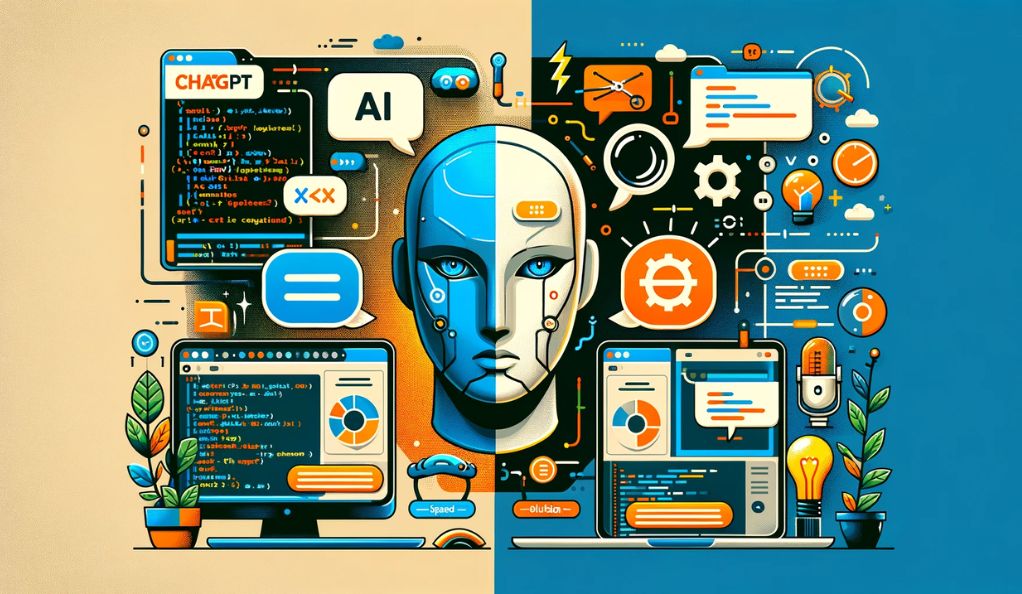
Integrating AI Coding Tools with Existing IDEs
The true power of AI coding tools is realized when they are seamlessly integrated into the development environments that developers use daily.
Compatibility and Integration with Popular IDEs
The integration of AI tools into IDEs like Visual Studio Code, IntelliJ IDEA, and Eclipse has been a significant advancement. These integrations allow developers to access sophisticated AI features like code completion, intelligent suggestions, and real-time error detection without ever leaving their coding environment.
For example, the GitHub Copilot extension for Visual Studio Code brings the power of AI directly into the editor, enabling developers to write code faster and with fewer errors. This integration is not just about convenience; it’s about creating a more intuitive and productive development experience.
The Cost of Innovation: Pricing and Accessibility of AI Tools
While the benefits of AI coding tools are clear, there is a cost associated with their adoption. The market offers a range of options, from free, community-driven tools to enterprise-grade solutions with advanced features and support.
Evaluating the Cost-Benefit of AI Coding Tools for Teams
When considering the adoption of AI coding tools, teams must evaluate the potential return on investment. While some tools may come with a higher price tag, the benefits — such as increased productivity, reduced bug rates, and faster time-to-market — can far outweigh the initial costs. Teams must assess their specific needs, the size and scope of their projects, and the potential efficiency gains to make an informed decision.
User Reviews and Community Feedback
The feedback from the developer community is a vital component in assessing the value and effectiveness of AI coding tools.
Analyzing User Reviews for Platforms like GitHub Copilot and Tabnine
Platforms like GitHub Copilot and Tabnine have garnered extensive user reviews that highlight their benefits and limitations. By analyzing this feedback, developers can gain insights into how these tools perform in real-world scenarios, what kind of support and updates they can expect, and how they might fit into their own development workflows.
Conclusion: The AI-Driven Development Ecosystem
The integration of AI into the software development lifecycle has transcended beyond a mere trend to become an integral component of the modern developer’s toolkit. This AI-driven development ecosystem is not just reshaping existing workflows but is also paving the way for new methodologies and practices in software engineering. With AI coding tools, developers are equipped to tackle complex challenges more efficiently, pushing the boundaries of innovation and driving the industry forward. The synergy between human creativity and machine intelligence is yielding software solutions that are more robust, secure, and aligned with user needs than ever before.
As we look to the future, the role of AI in software development is poised to expand even further. The continuous feedback loop between developers and AI tools will refine these technologies to be more intuitive and effective, ultimately leading to a more collaborative relationship between humans and machines. This partnership promises to unlock new potentials in productivity, reduce the time to market for new software solutions, and enhance the overall quality of digital products. The AI-driven development ecosystem is not just a testament to technological advancement; it is a reflection of our commitment to excellence in an increasingly digital world.

